|
 Secure Site
Secure Site
|
 |
 Choose a Gentle Zen Timer for Your Partner Yoga Practice Partnering up in yoga class can deepen your practice and connect you to yourself and your fellow yogis.
We were only a few minutes into the yoga class when the teacher uttered the five words I dread hearing: “OK, everybody, find a partner!” As we students sized up one another with varying degrees of wariness, the teacher demonstrated what she wanted us to do by leaping lightly onto the thighs of a supine volunteer and balancing there, as gracefully as a cat, her feet grounding and rotating her partner’s thighs inward.
Full disclosure: My approach to partnering exercises in yoga class has generally been of the “Lie back and think of England” variety, though I usually participate as gamely as I can. But this particular caper was just too much for my inner Woody Allen. What if my partner or I slipped and fell? What if I had bone density issues I didn’t know about? What if my partner outweighed me, or I her? What about my bad knee? Where were the feet supposed to go? Concerned about my safety, and uncomfortable turning to the person next to me and saying, “It’s nice to meet you. I’m now going to place my bare feet on your thighs,” I declined to participate.
Unlike “partner yoga,” in which two people come together to create a single pose, often practiced with a friend or significant other, “partnering” takes place when your teacher asks you to consider the student next to you as a human prop to help you get into a pose more fully, isolate a particular action, or help you balance. A teaching tool in many styles of yoga classes, partnering tends to inspire strong feelings among practitioners: Mention the subject to a group of yoga students, and the room is likely to erupt in exclamations as people tell their stories of awkward moments, contact with another person’s sweat or stinky feet, and even injuries.
 Dos damas paseando - artista Shunshô Katsukawa Here at the Yoga Journal office, where we practice yoga together every day, we ask that our teachers not do partnering exercises in class—not all of us are comfortable with the degree of physical intimacy involved in sharing sweat with a supervisor, or gripping a co-worker from behind. But the frequency of partnering exercises in the other classes I attended made me wonder whether my resistance to them could be holding me back. What was I missing by participating reluctantly, or opting out entirely? When I started asking around, I discovered that there’s no simple answer to that question, since partnering exercises themselves, and people’s attitudes toward them, vary greatly. A few teachers told me that they never teach partnering exercises in class, because of the risk of injury. For other teachers and practitioners, asking, “How do you feel about partnering?” was like asking, “How do you feel about yoga?”—so central does the one practice seem to be to the other. Still others described partnering, when done safely and skillfully, as a useful tool for deepening your practice.
Use our unique “Zen Clock” which functions as a Yoga Timer. It features a long-resonating acoustic chime that brings your meditation or yoga session to a gradual close, preserving the environment of stillness while also acting as an effective time signal. Our Yoga Timer & Clock can be programmed to chime at the end of the meditation or yoga session or periodically throughout the session as a kind of sonic yantra. The beauty and functionality of the Zen Clock/Timer makes it a meditation tool that can actually help you “make time” for meditation in your life. Bring yourself back to balance.
adapted from YogaJournal.com by Charity Ferreira
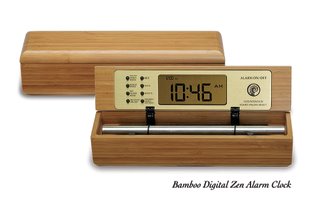 Yoga Timer for Partner Yoga in Bamboo Now & Zen’s Yoga Timer Store
1638 Pearl Street
Boulder, CO 80302
(800) 779-6383
Posted in Meditation Timers, Meditation Tools, mindfulness practice, Yoga Timer, Yoga Timers by Now & Zen
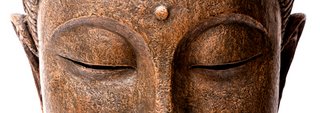 Buddha Meditation can be challenging. Even after you’ve had a taste of its benefits and long for those sweet moments of inner calm, clarity, and deep connection, it can be hard to just sit. If you’re like most people, you may find that one day your mind is speeding into the future, your body feels agitated, and you can’t sit still, while the next day you’re so lethargic that you can hardly stay awake. Don’t be discouraged. Resting with ease in meditation doesn’t magically happen. But there is a path to help you get there: Through your breath, you can tap into the flow ofprana (life force) to increase, decrease, or focus your energy, bringing you into a state of balance and making it easier to sit with relaxed attention in meditation.
Prana flows along energy channels in the body called nadis.The three main nadis are the sushumna, the central channel along the spine through whichkundalini, your spiritual energy, ascends; and the ida and pingala, which start on either side of the sushumna and spiral upward in a double-helix pattern around it.
Prana moves with breath and mind (which includes your thoughts, mental images, and emotions). A change in one affects the other. Through the breath, you can open, regulate, and direct the flow of prana, which, in turn, will stabilize the mind and body for meditation.
Depending on your mood and energy level, one of the following asana and pranayama practices can help you move from agitation to relaxation, from lethargy to lightness, from fragmentation to integration—so that you might ease gently into meditation. (To find a variety of meditation practices, click here.) The emphasis in each of the following practices is on linking slow, mindful movements with the breath and creating dynamic, flowing transitions to integrate mind and body. Each series is repeated several times, during which the length of the exhalation and inhalation—and the pauses in between—change progressively.
Sometimes you need to wake up, and sometimes you need to calm down. Often you need a combination of awakening, calming, and focusing energies. But to understand your needs, it’s essential to spend some time discovering what state your energy is in.
 Meditation - Choose a Gentle Tibetan Bell-like Gong for a Timer How Do You Feel?
Begin by lying on your back with your legs extended. Fill your body with awareness, as if you were filling a glass with water. Notice how your body responds. Does it begin to release and relax, or is there resistance? Close your eyes and feel the weight of your skull and pelvis, the contact of your back on the floor. Are there places that pull away from the floor and areas that are more in contact?
Then mentally scan your body one area at a time. Begin with your toes and travel up to your legs, pelvis, spine, lower and upper back, and shoulders, then down your arms and hands, and back up your arms to your neck and head. Are there areas of discomfort, places that feel stiff or more spacious, or parts that feel warm, cold, or numb? Some areas of holding are so habitual that we skip over them without noticing; let your attention gently tap into those places. As you scan your body, see whether a running commentary is going on in your head. Try not to judge or analyze what you discover. Instead, simply notice what is present. Now bring your focus to the central column of your spine. Imagine a wide river from the base of your spine to the base of your skull. Does the river flow freely? Are there areas where it’s blocked, narrowed, or stagnated?
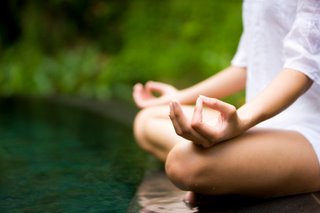 Meditation for Relaxation Next, bring your awareness to your entire body at once. Notice if there are any strong sensations remaining, areas of the body calling for attention. Now allow your mind to draw into the breath. Notice the quality, texture, and rhythm of your breathing. Is it short and choppy, long and smooth, or somewhere in between? Do you tend to hold your breath after breathing in or out? Notice the relationship between your breath, body, and thoughts.
Now check out the flow of thoughts moving through your mind. Do you have a perpetual to-do list? Are you rehashing some conversation or planning the future? Are you spacing out, or do you feel sharp and clear? Try not to make judgments—simply observe. As certain thoughts come, is there a physical response in your body or your breath?
Next, place one hand on your heart. Take a moment to feel the beating of your physical heart, your chest rising and falling with your breath. Let your awareness settle into its rhythm, then drop your attention in a little deeper, sensing the emotional heart. Is there sadness, joy, or anxiety? Don’t go deeply into any one feeling; just get a sense of the overall tone that is present at this moment. Make note of the relationship between your emotional state and your breath, between your feelings and your physical body.
Finally, feel all of these dimensions at once: physical, energetic, mental, and emotional. Notice the part of you that is observing—your unchanging awareness. Now rest in this spacious awareness.
Remember, your observations may change from day to day, depending on the hour, your schedule, and all of the other variables that affect your energy and mood. If you observed that your breathing was labored, your mind dull, and your heart heavy, try an energizing practice. Was your breathing rapid, your mind racing, and your body tense? Then a calming practice might be most appropriate. Feeling scattered and disoriented? A focusing practice can help you come into balance. Listen to your mind, body, and heart for guidance about a movement practice that can bring you into balance, ready to sit and draw your attention inward.
Use our unique “Zen Clock” which functions as a Yoga and Meditation Timer. It features a long-resonating acoustic chime that brings your meditation or yoga session to a gradual close, preserving the environment of stillness while also acting as an effective time signal. Our Yoga Timer & Clock can be programmed to chime at the end of the meditation or yoga session or periodically throughout the session as a kind of sonic yantra. The beauty and functionality of the Zen Clock/Timer makes it a meditation tool that can actually help you “make time” for meditation in your life. Bring yourself back to balance.
adapted from YogaJournal.com by Janice Gates
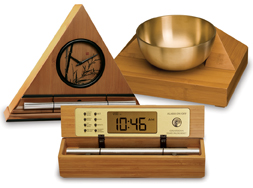 Gong Timer for Meditation Now & Zen’s Gong Timer Store
1638 Pearl Street
Boulder, CO 80302
(800) 779-6383
Posted in Meditation Timers, Meditation Tools, mindfulness practice, Natural Awakening
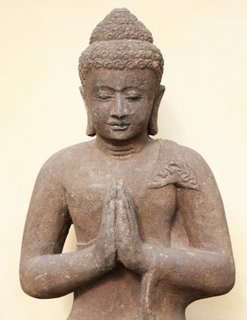 Buddha Set aside half an hour.
Begin by calling to mind a sage or saint, or another human being you deeply admire. It should be someone you have a feeling for and whose teachings you understand—Jesus, or Buddha, Gandhi, St. Teresa of Avila, the Baal Shem Tov, or your own teacher, if that teacher has been a reliable example of enlightenment.
If no one comes to mind, choose one of the qualities of enlightened consciousness—such as compassion or love. Now, think deeply about that person or the quality you want to embody. Consider how it might be to look through that person’s eyes. If it’s a quality, ask yourself, “How would it be at this moment to look through the eyes of love?” Ask yourself, “How did this being treat others?” How might he or she behave while living your life? (Yes, what would Jesus do?) Imagine facing a challenge, a big conflict, the desertion of someone close. How would that person handle it?
Now, close your eyes and imagine that the spirit of that person (or that quality) inhabits your body. Inhale, thinking to yourself, “Christ’s love lives within me, as my love,” or “Buddha’s state of enlightenment is my enlightenment,” or “The courage of Gandhi is my courage.” Exhale, thinking, “That inner state fills my body.”
Do this for a few moments. Then ask yourself, “How would I move through the world if I truly embodied the qualities of this being? How would I treat myself? How would I be with my partner? my kids? my parents? the people on the bus? What would it be like to interact with others?”
Let your imagination completely open to this practice, imagining yourself enlightened, saturated with love. For the remainder of the half hour, act out of that experience. Be the great being you’re imagining yourself to be. Act out the quality you want to imbibe. Do this for half an hour a day for a week and see if you notice the effect.
Although meditation can be done in almost any context, practitioners usually employ a quiet, tranquil space, a meditation cushion or bench, and some kind of timing device to time the meditation session. Ideally, the more these accoutrements can be integrated the better. Thus, it is conducive to a satisfying meditation practice to have a timer or clock that is tranquil and beautiful. Using a kitchen timer or beeper watch is less than ideal. And it was with these considerations in mind that we designed our digital Zen Alarm Clock and practice timer. This unique “Zen Clock” features a long-resonating acoustic chime that brings the meditation session to a gradual close, preserving the environment of stillness while also acting as an effective time signal. The Digital Zen Clock can be programmed to chime at the end of the meditation session or periodically throughout the session as a kind of sonic yantra. The beauty and functionality of the Zen Clock/Timer makes it a meditation tool that can actually help you “make time” for meditation in your life.
adapted from YogaJournal.com by Sally Kempton
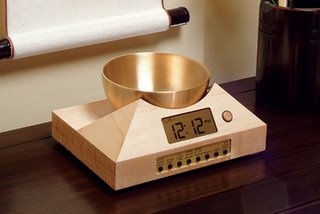 Zen Gong Alarm Clock and Timer for Meditation and Yoga Now & Zen’s Gong Meditation Timer
1638 Pearl Street
Boulder, CO 80302
(800) 779-6383
Posted in Chime Alarm Clocks, Meditation Timers, Meditation Tools, mindfulness practice
 KOITSU -- Full Moon at Akashi Beach - Choose an Alternative to a Snooze Button Alarm Clock Kick your insomnia for good by creating a simple and restful nighttime routine.
Whether it’s yoga to reduce muscle tension, breathing to slow the heart rate, or an herbal massage to calm a racing mind, a simple routine can be the most effective and safest road to a better night’s sleep. There is growing evidence that small behavioral changes can make a big difference in getting some good shuteye. A 2006 study published in the Journal of the American Medical Association showed that participants who made modifications like reducing stimuli in the bedroom and learning relaxation techniques improved their sleep more than those who took drugs.
The first step to feeling well rested is to institute a regular bedtime. Maintaining consistency will help keep your circadian rhythms—the biological changes that happen every 24 hours—steady. Eventually, your body will naturally understand and crave sleep during these hours.
The next step is to create some space between your busy day and sleep time. “You can’t just work until 9 at night, and then stick your head on the pillow and fall asleep,” Khalsa says. So turn off the television, computer, and radio. Cut down on or eliminate evening classes and exercise that leaves you feeling amped up. When you come home, honor this transition by playing relaxing music, lighting candles, or putting on your favorite pajamas. Think of the yoga precept ofpratyahara: Withdraw your senses in order to turn inward.
Once you’ve chosen your specific nighttime ritual, repeat it every night to cue your body that it’s time for sleep. Khalsa says that after a few weeks of practice, your sleep will improve. “These things don’t work instantly, but over time you normalize arousal and sleep starts to get better.” And as opposed to suffering from side effects such as headaches, dizziness, daytime drowsiness, and long-term dependence on drugs, you’ll feel better overall, instead of worse, with your nighttime routine. “It improves individuals on a holistic level, and other problems that they might have had also might start to dissipate,” says Khalsa. Now that sounds like a side effect we can all live with.
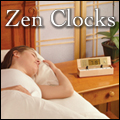 Chime Alarm Clocks for a Progressive, Peaceful Awakening Waking up in the morning should be as pleasant as falling asleep at night. The Zen Alarm Clock’s gradual, gentle awakening is transformative.
Boulder, Colorado—an innovative company has taken one of life’s most unpleasant experiences (being startled awake by your alarm clock early Monday morning), and transformed it into something to actually look forward to. “The Zen Alarm Clock,” uses soothing acoustic chimes that awaken users gently and gradually, making waking up a real pleasure. Rather than an artificial recorded sound played through a speaker, the Zen Clock features an alloy chime bar similar to a wind chime. When the clock’s alarm is triggered, its chime produces a long-resonating, beautiful acoustic tone reminiscent of a temple gong. Then, as the ring tone gradually fades away, the clock remains silent until it automatically strikes again three minutes later. The frequency of the chime strikes gradually increase over ten-minutes, eventually striking every five seconds, so they are guaranteed to wake up even the heaviest sleeper. This gentle, ten-minute “progressive awakening” leaves users feeling less groggy, and even helps with dream recall.
adapted from Yoga Journal by Nora Isaacs
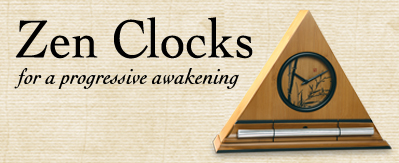 Zen Clocks for a Progressive Awakening Now & Zen’s Chime Alarm Clock Store
1638 Pearl Street
Boulder, CO 80302
(800) 779-6383
Posted in Bamboo Chime Clocks, Natural Awakening, sleep, Sleep Habits
 Wake up refreshed, love your alarm clock, transform your mornings with The Zen Alarm Clock's progressive awakening with gentle chimes. If you haven’t woke up feeling refreshed in who knows how long, you can blame your gadgets from ruining your slumber.
A new study by the National Sleep Foundation (NSF) shows that people are overwhelmingly using technology before sleep, which has proven to disrupt sleeping patterns. Ninety-five percent of the people surveyed admitted to using some sort of device in the hour before sleep – and that doesn’t even count the people woken up by text messages, phone calls or emails during the night.
“Artificial light exposure between dusk and the time we go to bed at night suppresses release of the sleep-promoting hormone melatonin, enhances alertness and shifts circadian rhythms to a later hour—making it more difficult to fall asleep,” Doctor Charles Czeisler of Harvard Medical School and Brigham and Women’s Hospital explained in the press release. “This study reveals that light-emitting screens are in heavy use within the pivotal hour before sleep. Invasion of such alerting technologies into the bedroom may contribute to the high proportion of respondents who reported that they routinely get less sleep than they need.”
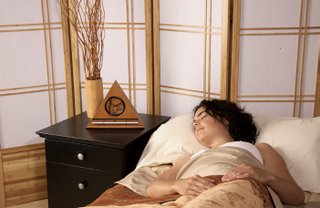 Wake up with gradual, beautiful acoustic chimes. The Zen Alarm Clock transforms your mornings and gets you started right, with a progressive awakening
Lack of sleep is a problem for everyone since sleepiness can affect work and school performance, mood, driving habits, sex life and your health. It’s especially bad for the younger generation because they are still developing. Interactive technologies, such as games, surfing the Web and talking on a cell phone can be particularly disruptive because they stimulate the brain and stop you from beginning the sleep onset process.
The study revealed:
– One in ten said they were woken up by a text message or call, with 20 percent of those people saying it happens more than once a week.
– Sixty-seven percent of baby boomers surveyed admitted they watched TV in the hour before bed, with only 49 percent of people aged 19 to 29 tuning in.
– Six out of ten people used their laptop before sleeping at least once a week. Most guilty of this were the 13- to 18-year-olds: 55 percent copped to the deed.
– Only one-third of people 13 to 29 played video games before bed. The number drastically drops in the older age groups.
– The average American copes by taking naps and drinking caffeinated beverages. We’re averaging three 12-ounce caffeinated beverages per weekday. Slightly more than half of the people under 29 said they take at least one nap during the work week or school week, compared to 40 percent of people 30 and 64.
Scientists suggest doing wind down activities before bed, sticking to a strict sleep schedule and exposing yourself to bright light in the morning, but avoiding it at night. Try not to take late night naps or drink caffeinated beverages right before bed. If you’re someone who constantly worries, keep a physical – not on your computer – worry journal that you can jot things down in the middle of the night if you wake up.
And, don’t be afraid to turn off your cell phone: Whatever it is, it can wait until the morning.
adapted from Time.com, by Michelle Castillo
Boulder, Colorado—an innovative company has taken one of life’s most unpleasant experiences (being startled awake by your alarm clock early Monday morning), and transformed it into something to actually look forward to. “The Zen Alarm Clock,” uses soothing acoustic chimes that awaken users gently and gradually, making waking up a real pleasure.
Rather than an artificial recorded sound played through a speaker, the Zen Clock features an alloy chime bar similar to a wind chime. When the clock’s alarm is triggered, its chime produces a long-resonating, beautiful acoustic tone reminiscent of a temple gong. Then, as the ring tone gradually fades away, the clock remains silent until it automatically strikes again three minutes later. The frequency of the chime strikes gradually increase over ten-minutes, eventually striking every five seconds, so they are guaranteed to wake up even the heaviest sleeper. This gentle, ten-minute “progressive awakening” leaves users feeling less groggy, and even helps with dream recall.
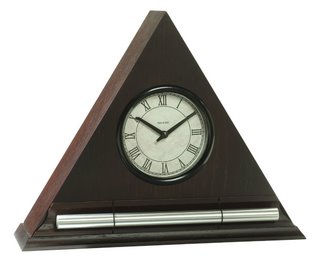 The Zen Alarm Clock transforms mornings, awakening you gradually with a series of gentle acoustic chimes Once you use a Zen Clock nothing else will do Now & Zen – The Soothing Chime Alarm Clock Store
1638 Pearl Street
Boulder, CO 80302
(800) 779-6383
Posted in Uncategorized
 Why Do Some People Need More Sleep? New research suggests it is in our genes…
Some people are genetically programmed to need less sleep than the rest of us, according to a new paper published this week in Science. A rare genetic mutation lets its carriers function happily and healthily even with hours less sleep each night than doctors normally recommend.
Researchers discovered the enviable gene variant after studying a family in which two members, a mother and a daughter, seemed to need much less daily rest than their close relatives. The women slept just 6.25 hours per night, while others in the family averaged 8.06 hours. The researchers then sequenced some genes they thought could be responsible, and discovered that both mom and daughter — unlike others in the family — had a never-before-seen mutation in a gene that’s known to affect circadian rhythms.
Next, to test whether that gene variant was really the cause of mom and daughter’s shortened sleep time (and not just some freak coincidence), the researchers genetically engineered a group of mice to express the newly found mutation. Sure enough, those mice had a typical activity period that’s more than an hour longer, on average, than that of a normal mice. The mutant mice also seemed to need less catch-up sleep than others after a period of sleep deprivation.
The new findings give a fascinating insight into why humans vary so much in how long we sleep — with a good night’s shut-eye ranging anywhere from six hours to nine, depending on whom you ask. But the result can hardly explain everything. This new-found gene variant appears in just 1 in 60 families that were studied, according to a follow-up paper that’s also published this week in Science. For genes to explain the full range of human sleep needs, then, there would have to be other genes involved too.
adapted from Time.com, by Laura Blue
Our Digital Zen Clock’s long-resonating Tibetan bell-like chime makes waking up a beautiful experience – its progressive chimes begin your day with grace. When the clock’s alarm is triggered, the acoustic chime bar is struck just once … 3-1/2 minutes later it strikes again … chime strikes become more frequent over 10 minutes … eventually striking every 5 seconds until shut off. As they become more frequent, the gentle chimes will always wake you up – your body really doesn’t need to be awakened harshly, with a Zen Clock you’re awakened more gradually and thus more naturally. Unlike artificial recorded sounds coming out of a tiny speaker in a plastic box, natural acoustic sounds transform your bedroom or office environment.
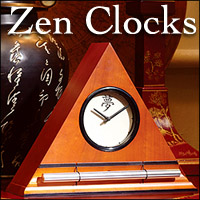 The Zen Alarm Clock transforms mornings, awakening you gradually with a series of gentle acoustic chimes Once you use a Zen Clock nothing else will do. Now & Zen – The Zen Alarm Clock Store
1638 Pearl Street
Boulder, CO 80302
(800) 779-6383
Posted in Bamboo Chime Clocks, Chime Alarm Clocks, sleep, Sleep Habits, Well-being
 Scientific Evidence for Beauty Sleep - Elegant Women. Courtesy of the Japan Ukiyo-e Museum Beauty sleep, it’s widely assumed, is one of those invented phenomena that parents use to ease their children’s passage to bedtime. After all, if sleeping had any real impact on beauty, bears, toads and frogs would be the handsomest creatures on the planet. But now a new study out of Sweden suggests there may be something to it after all.
In the study, published Tuesday on BMJ.com, John Axelsson of the Karolinska Institute looked at the effect that sleep, or its lack, had on the way other people perceived the attractiveness of the sleeper.
Axelsson’s interest in the subject was partly inspired by a question from his young daughter about whether it was the long nap that made Sleeping Beauty so lovely. And, partly, it was that he saw a gap in the scholarship. “The field of sleep research is full of studies showing the physiological and cognitive consequences of disturbed sleep,” he says, “while there is clear lack of how poor sleep affects our everyday social life.”
It’s estimated that about 40 million people suffer from chronic sleep disorders in the U.S. and a further 20 million have frequent problems sleeping. Even for good sleepers, with holiday and New Year’s celebrations oncoming, this is among the most slumber-deprived of seasons.
 How Can You Get Your Beauty Sleep? For the study, 23 participants, all between the prime partying ages of 18 to 31, were recruited. They were asked to sit for photographs in the afternoon, between 2 p.m. and 3 p.m. This time “coincides with the afternoon dip, or siesta time, a time where most people are sleepier,” says Axelsson. And unlike office workers, the study volunteers were not allowed to consume a mid-afternoon caffeinated beverage to keep them going.
Each photograph was identical — lit the same way, the same distance from the camera, with no makeup and natural hairstyles. The subjects were told to have a relaxed, neutral expression. They weren’t allowed to drink alcohol for the 48 hours prior to the experiment. The only difference among the volunteers was that some had had a full night’s sleep the night before, while others had been awake for 31 hours straight, after just five hours of sleep the previous night.
The photos were then shown to a group of 65 different people, who, knowing nothing about how tired the people in the photos were, rated their attractiveness. The observers rated the sleep-deprived as less healthy looking, less fetching and, obviously, more tired-looking.
Of course, anyone who’s ever pulled an all-nighter knows that it’s no formula for good looks — the next day, you’re saddled with puffy, bloodshot eyes, dark circles and a wan complexion — but now there’s a study to prove it. So if the old adage about getting your beauty sleep is true, what does that mean for watched pots never boiling, or crying over spilled milk? Probably nothing, but Axelsson is curious. “There are so many old ‘sayings’ or beliefs incorporated in our culture, but we do not know if they are true,” he says. “It is our scientists’ responsibility to evaluate the truth in them.”
Boulder, Colorado—an innovative company has taken one of life’s most unpleasant experiences (being startled awake by your alarm clock early Monday morning), and transformed it into something to actually look forward to. “The Zen Alarm Clock,” uses soothing acoustic chimes that awaken users gently and gradually, making waking up a real pleasure.
What makes this gentle awakening experience so exquisite is the sound of the natural acoustic chime, which has been tuned to produce the same tones as the tuning forks used by musical therapists. According to the product’s inventor, Steve McIntosh, “once you experience this way of being gradually awakened with beautiful acoustic tones, no other alarm clock will ever do.”
adapted from Time.com by Belinda Luscombe
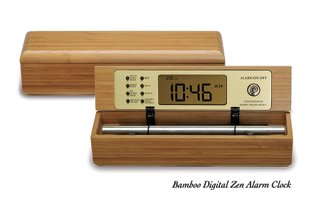 Choose a Gentle Alarm Clock to Awaken You Gently Now & Zen – The Peaceful Awakening Clock Store
1638 Pearl Street
Boulder, CO 80302
(800) 779-6383
Posted in Bamboo Chime Clocks, sleep, Sleep Habits, wake up alarm clock
 A Place to Power Nap - Toyokuni Utagawa, Flower Arrangement With 510 franchises in the U.S. and abroad, Le Gourmet Gift Basket in Castle Rock, Colo., is the model of an always-on global business. Employees arrive early–5 a.m. isn’t unusual–to deal with clients in other time zones. They have all honed their techniques for avoiding jet lag and fatigue as they travel from the Colorado office to other U.S. locations, like Hawaii, or to Australia, New Zealand and Malaysia to meet with vendors and train new franchisees who sell the company’s high-end gift baskets. But that isn’t enough for CEO Cynthia McKay. She believes that good sleep means good business, and she has made it part of her company’s workplace culture.
In one of two designated sleep areas in Le Gourmet’s offices, employees can nap for 15 or 30 minutes on a foldout couch or single cot. If the alarm clock doesn’t rouse them, McKay will, to make sure they’re getting the short naps she thinks will do the most for productivity. “I consider my staff irreplaceable,” she says, “and I want to keep them off the road if they are not at their best.
One of the ultimate Zen like experiences is waking-up from a great slumber refreshed and energized. Your mind and body are harmoniously one, both alert and focused. Having a refreshed mind and body are two keys to a natural and Zen lifestyle. Waking up in the morning should not be a loud and abrupt awakening, but rather it should be a peaceful positive experience. The right natural alarm clock can transition your deep and tranquil sleep into a serene start to consciousness. Imagine a long-resonating Tibetan bell-like chime waking you up to a beautiful morning experience.
The right alarm clock can be the most beneficial investment for you. With our Now & Zen natural alarm clock you are awakened more gradually and thus more naturally. Now & Zen is focused on creating a naturalistic lifestyle, and our clocks are an example of our philosophy.
adapted from Time.com by Francine Russo
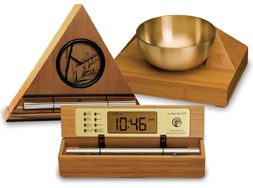 The Best Soothing Chime Alarm Clocks - Boulder, CO Now & Zen – The Chime Alarm Clock Store
1638 Pearl Street
Boulder, CO 80302
(800) 779-6383
Posted in Uncategorized
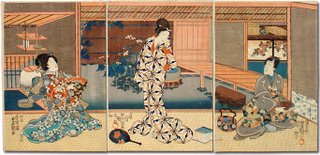 Are You a Light or Heavy Sleeper? Ukiyo-e, A Tea Party by Toyokuni II How many times do you wake during the night? Do the slightest disturbances — the sound of a toilet flushing, say, or the TV in the next room — rouse you from sleep, while your partner slumbers soundly through a thunderstorm?
It turns out that some people’s brains are better than others’ at blocking the constant incoming flow of environmental stimuli during sleep, and in a new study, scientists have identified and measured the process. They hope that one day they will be able to manipulate this ability in order to give lighter sleepers a better night’s rest.
Ambient sound is the most common cause of sleep interruption, since even during sleep, the brain must actively receive sensory information. But as it continually monitors stimuli from the environment in order to protect against threats, the brain also actively blockades them to allow body and mind to recharge and rest during sleep. Now, for the first time, sleep researchers at Harvard Medical School and Massachusetts General Hospital, led by neurologist Dr. Jeffrey Ellenbogen, have isolated the brain-wave pattern that predicts where an individual’s brain has struck a balance between those demands — a window into how likely noises are to wake people from deep sleep.(See a Q&A on why we can’t sleep at night.)
“People currently working on how noise disrupts sleep typically look at it from two perspectives,” says Ellenbogen. “They look at the source of the sound — so public policies attempt to stop airplanes from flying at certain times or over certain areas — or they address the path of the sound, at things like double-paned windows or earplugs. I’m adding a third perspective — the brain. Because the key part of normal healthy sleep is being able to block the response to sounds.”
 Sleep Sounder - Choose A Gentle Wake Up with Progressive Chimes For the three-night study, Ellenbogen’s group invited 12 volunteers who reported being deep and healthy sleepers into a sleep lab with a comfy queen-size bed outfitted with enormous speakers at the headboard. The researchers recorded the participants’ brain waves as they slept normally the first night, and then on subsequent nights as they were bombarded with 14 different noises — from the din of car traffic and the roar of airplane engines to flushing toilets and slamming doors — which were played at progressively louder volumes.
Ellenbogen paid particular attention to the patterns generated by the thalamus, a region deep in the brain that processes incoming visual and auditory stimuli. He found that the number of pulses, known as sleep spindles, generated by this organ and measured by an electroencephalogram, which records electrical activity in the brain, varied among the sleepers. Those with the highest number of spindles were able to sleep through more sounds without waking than those whose brains showed fewer spindles. “We wanted to know, if we counted the spindles the first night, did that predict anything about their subsequent sleep?” says Ellenbogen. “And indeed it did. More spindles meant they were more likely to be protected from sleep disruption.”
Further research is needed to confirm the association, but Ellenbogen is confident that his findings will lead to better sleep for more people. For now, restless sleepers can have their sleep spindles measured by any sleep lab, which can help them determine their sensitivity to sounds. That information can in turn help people insulate themselves from potential disturbances during sleep — by wearing earplugs, for example, or requesting a room far away from the ice machine in a hotel.
In the coming years, Ellenbogen hopes the research will lead to drugs or other interventions that can manipulate the number of sleep spindles and give lighter sleepers a better way to block out disturbing sounds. “The name of the game in sleep is stacking the cards in your favor, and one of those cards is having a quiet environment,” he says. “When it’s not quiet, we need to figure out how to block that sound from getting the brain to cause you to wake. And hopefully brain-based solutions will one day be an option for protecting sleepers from losing sleep every night.”
One of the ultimate Zen like experiences is waking-up from a great slumber refreshed and energized. Your mind and body are harmoniously one, both alert and focused. Having a refreshed mind and body are two keys to a natural and Zen lifestyle. Waking up in the morning should not be a loud and abrupt awakening, but rather it should be a peaceful positive experience. The right natural alarm clock can transition your deep and tranquil sleep into a serene start to consciousness. Imagine a long-resonating Tibetan bell-like chime waking you up to a beautiful morning experience.
The right alarm clock can be the most beneficial investment for you. With our Now & Zen natural alarm clock you are awakened more gradually and thus more naturally. Now & Zen is focused on creating a naturalistic lifestyle, and our clocks are an example of our philosophy.
adapted from Time.com by Alice Park
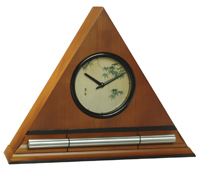 Gentle Chime Alarm Clock -- The Zen Clock by Now & Zen, Inc. - Boulder, CO Now & Zen – The Zen Alarm Clock Store
1638 Pearl Street
Boulder, CO 80302
(800) 779-6383
Posted in Uncategorized
 Dreams May Useful in Resetting Our Emotional Compass - Yoshitoshi Taiso Dreams may not be the secret window into the frustrated desires of the unconscious that Sigmund Freud first posited in 1899, but growing evidence suggests that dreams — and, more so, sleep — are powerfully connected to the processing of human emotions.
According to new research presented last week at the annual meeting of the Associated Professional Sleep Societies in Seattle, adequate sleep may underpin our ability to understand complex emotions properly in waking life. “Sleep essentially is resetting the magnetic north of your emotional compass,” says Matthew Walker, director of the Sleep and Neuroimaging Lab at the University of California, Berkeley.
REM sleep appears to not only improve our ability to identify positive emotions in others; it may also round out the sharp angles of our own emotional experiences. Walker suggests that one function of REM sleep — dreaming, in particular — is to allow the brain to sift through that day’s events, process any negative emotion attached to them, then strip it away from the memories. He likens the process to applying a “nocturnal soothing balm.” REM sleep, he says, “tries to ameliorate the sharp emotional chips and dents that life gives you along the way.
 Can Dreams Improve Our Emotional Life? adapted from Time.com, by Tiffany Sharples
Boulder, Colorado—an innovative company has taken one of life’s most unpleasant experiences (being startled awake by your alarm clock early Monday morning), and transformed it into something to actually look forward to. “The Zen Alarm Clock,” uses soothing acoustic chimes that awaken users gently and gradually, making waking up a real pleasure. Rather than an artificial recorded sound played through a speaker, the Zen Clock features an alloy chime bar similar to a wind chime. When the clock’s alarm is triggered, its chime produces a long-resonating, beautiful acoustic tone reminiscent of a temple gong. Then, as the ring tone gradually fades away, the clock remains silent until it automatically strikes again three minutes later. The frequency of the chime strikes gradually increase over ten-minutes, eventually striking every five seconds, so they are guaranteed to wake up even the heaviest sleeper. This gentle, ten-minute “progressive awakening” leaves users feeling less groggy, and even helps with dream recall.
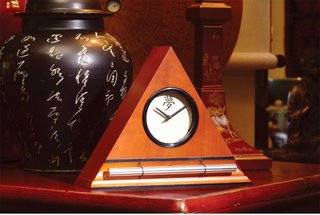 Gentle Chime Alarm Clocks for a Progressive Awakening Now & Zen – The Chime Alarm Clock Store
1638 Pearl Street
Boulder, CO 80302
(800) 779-6383
Posted in Bamboo Chime Clocks, sleep, Sleep Habits, wake up alarm clock, Well-being
|
|
|
|